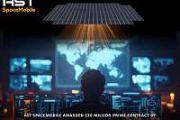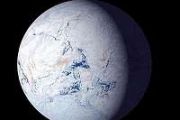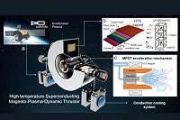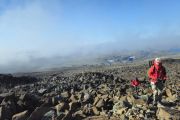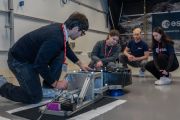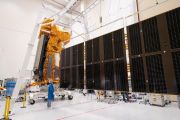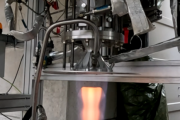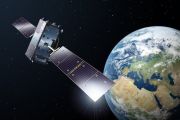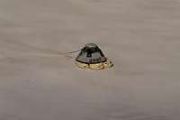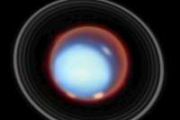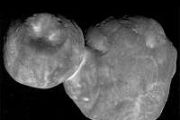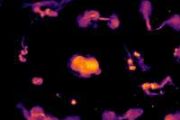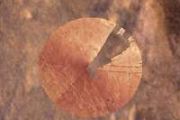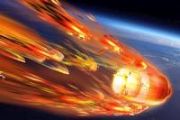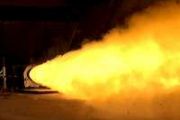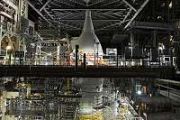
Copernical Team
Webb Telescope placed on top of Ariane 5 rocket
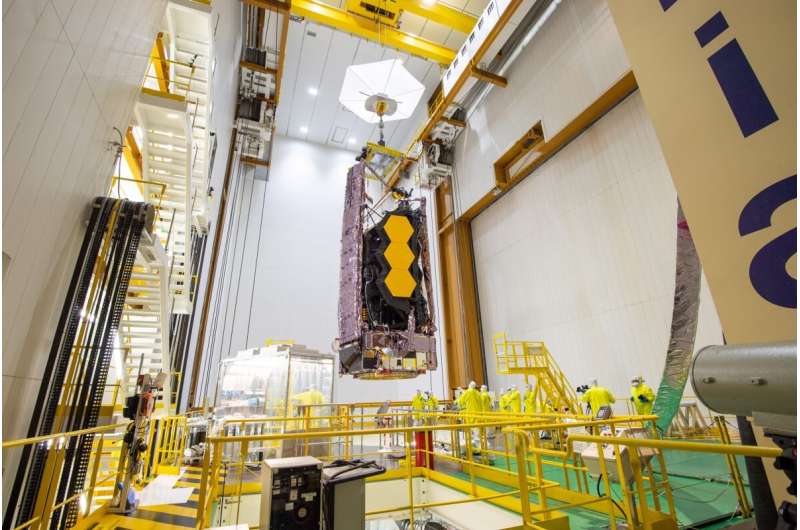
On Saturday, Dec. 11, NASA's James Webb Space Telescope was secured on top of the Ariane 5 rocket that will launch it to space from Europe's Spaceport in French Guiana.
After its arrival in the final assembly building, Webb was slowly hoisted nearly 130 feet and then perfectly aligned on top of the Ariane 5, after which technicians bolted Webb's launch vehicle adapter down to the rocket. This whole process was performed under strict safety and cleanliness policies, as it was one of the most delicate operations during the entire launch campaign for Webb. A custom 'shower curtain,' already installed between the two platforms where technicians worked to connect Webb to its launch vehicle, served as the walls of a clean room to keep the observatory dirt-free.
The next step ahead is to encapsulate Webb inside the Ariane 5's specially adapted fairing.
Webb will be the largest, most powerful telescope ever launched into space. As part of an international collaboration agreement, the European Space Agency (ESA) is providing the telescope's launch services using the Ariane 5 launch vehicle.
NASA: Webb telescope launch delayed by communication problem
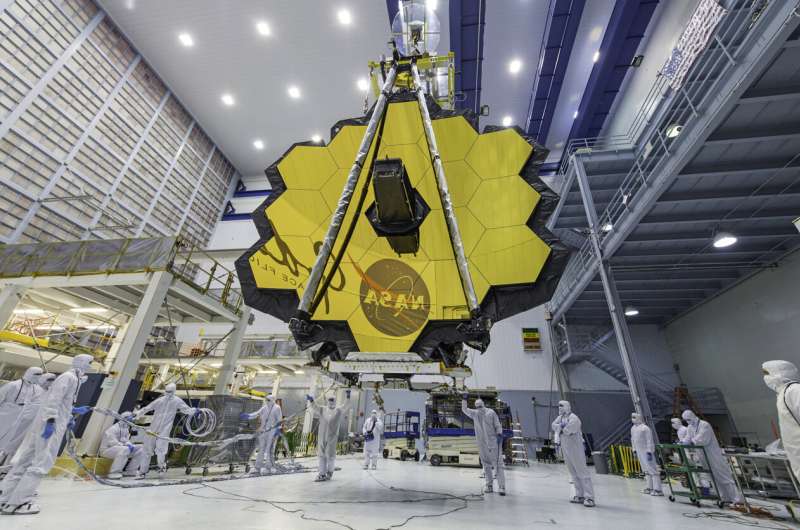
ExoMars discovers hidden water in Mars’ Grand Canyon
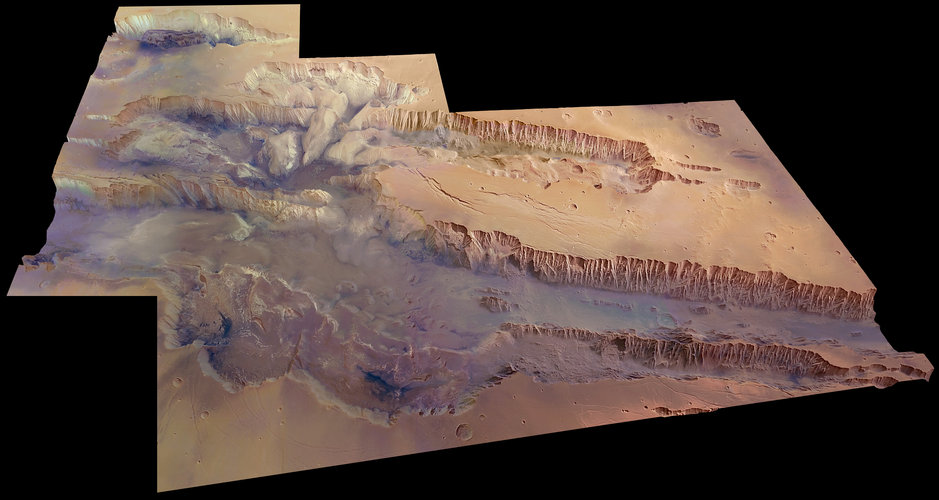
The ESA-Roscosmos ExoMars Trace Gas Orbiter has spotted significant amounts of water at the heart of Mars’ dramatic canyon system, Valles Marineris.
Dinosaurs' last spring: Study pinpoints timing of Chicxulub asteroid impact
 A groundbreaking study led by researchers at Florida Atlantic University and an international team of scientists conclusively confirms the time year of the catastrophic Chicxulub asteroid, responsible for the extinction of dinosaurs and 75 percent of life on Earth 66 million years ago. Springtime, the season of new beginnings, ended the 165-million-year reign of dinosaurs and changed the course
A groundbreaking study led by researchers at Florida Atlantic University and an international team of scientists conclusively confirms the time year of the catastrophic Chicxulub asteroid, responsible for the extinction of dinosaurs and 75 percent of life on Earth 66 million years ago. Springtime, the season of new beginnings, ended the 165-million-year reign of dinosaurs and changed the course AFRL celebrates successful rocket launch at STEM Academy
 "Five...four...three...two...one...launch," the Range Safety Officer called out. The Launch Control Officer pushed the red button, and the rocket took off, whoosh! about 1,000 feet in the air.
On a beautiful sunny fall day, 184 New Mexico middle school students from Christ Lutheran, Cleveland Middle, Holy Ghost Catholic, Menaul, Mesa View Elementary, and Peralta Elementary Schools, and sev
"Five...four...three...two...one...launch," the Range Safety Officer called out. The Launch Control Officer pushed the red button, and the rocket took off, whoosh! about 1,000 feet in the air.
On a beautiful sunny fall day, 184 New Mexico middle school students from Christ Lutheran, Cleveland Middle, Holy Ghost Catholic, Menaul, Mesa View Elementary, and Peralta Elementary Schools, and sev Experiments riding 24th SpaceX Cargo Mission to USS included bioprinting, crystallization, laundry studies
 The 24thSpaceX cargo resupply services mission, targeted to launch in late December from NASA's Kennedy Space Center in Florida, carries scientific research and technology demonstrations to the International Space Station. The experiments aboard include studies of bioprinting, crystallization of monoclonal antibodies, changes in immune function, plant gene expression changes, laundering clothes
The 24thSpaceX cargo resupply services mission, targeted to launch in late December from NASA's Kennedy Space Center in Florida, carries scientific research and technology demonstrations to the International Space Station. The experiments aboard include studies of bioprinting, crystallization of monoclonal antibodies, changes in immune function, plant gene expression changes, laundering clothes Parker Solar Probe data bolsters theories in long-running solar riddle
 Data collected by NASA's Parker Solar Probe bolsters theories previously put by University of Michigan researchers about one of the sun's greatest mysteries-why its outer atmosphere is hotter than its fiery surface.
Two years ago, U-M engineers predicted when the probe would pass a constantly moving, invisible barrier in the sun's upper atmosphere called the Alfven point. They also anticip
Data collected by NASA's Parker Solar Probe bolsters theories previously put by University of Michigan researchers about one of the sun's greatest mysteries-why its outer atmosphere is hotter than its fiery surface.
Two years ago, U-M engineers predicted when the probe would pass a constantly moving, invisible barrier in the sun's upper atmosphere called the Alfven point. They also anticip SatRevolution Secures Series B Funding from Virgin Orbit
 SatRevolution S.A. has secured Series B funding from Virgin Orbit, the US-based responsive launch and space solutions company that has announced a planned business combination with NextGen Acquisition Corp. II. The Transaction values SatRev at approximately $150 million, and will support SatRev's business development.
The Transaction, signed at World Satellite Business Week, follows a stra
SatRevolution S.A. has secured Series B funding from Virgin Orbit, the US-based responsive launch and space solutions company that has announced a planned business combination with NextGen Acquisition Corp. II. The Transaction values SatRev at approximately $150 million, and will support SatRev's business development.
The Transaction, signed at World Satellite Business Week, follows a stra NASA enters the Solar atmosphere for the first time
 For the first time in history, a spacecraft has touched the Sun. NASA's Parker Solar Probe has now flown through the Sun's upper atmosphere - the corona - and sampled particles and magnetic fields there.
The new milestone marks one major step for Parker Solar Probe and one giant leap for solar science. Just as landing on the Moon allowed scientists to understand how it was formed, touching
For the first time in history, a spacecraft has touched the Sun. NASA's Parker Solar Probe has now flown through the Sun's upper atmosphere - the corona - and sampled particles and magnetic fields there.
The new milestone marks one major step for Parker Solar Probe and one giant leap for solar science. Just as landing on the Moon allowed scientists to understand how it was formed, touching Stellar "ashfall" could help distant planets grow
 The world's first 3D simulation simultaneously considering dust motion and growth in a disk around a young star has shown that large dust from the central region can be entrained by and then ejected by gas outflows, and eventually fall back onto the outer regions of the disk where it may enable planetesimal formation.
This process can be likened to volcanic "ashfall" where ash carried up b
The world's first 3D simulation simultaneously considering dust motion and growth in a disk around a young star has shown that large dust from the central region can be entrained by and then ejected by gas outflows, and eventually fall back onto the outer regions of the disk where it may enable planetesimal formation.
This process can be likened to volcanic "ashfall" where ash carried up b 








